
Can infection spread through ACs? (VRV/VRF System)
Air-conditioners don’t spread viruses and infections. There are a lot of health-conscious people who are curious about whether their air conditioner (VRF/VRV) can spread viruses/infections or not. After COVID-19, people are more health-conscious than ever.
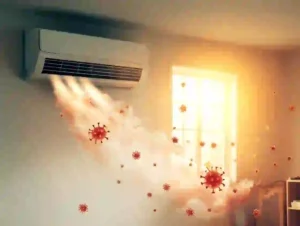
Generally, VRF or VRV systems don’t spread infections or viruses, but there are some conditions to consider. Here, I am explaining everything about this.
Basically, VRF and VRV are the same thing, with the only difference being their names. VRF systems don’t spread viruses because they don’t take air from outside. It absorbs heat from your room and cools the room temperature. They maintain the required room temperature using a common refrigerant gas like R410A.
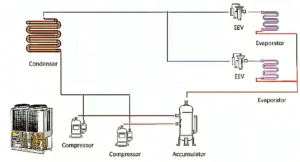
In a VRF system, cold liquid refrigerant goes to the evaporator of the indoor AC. The indoor AC (evaporator) acts as a heat exchanger. It absorbs heat from your room and cools the room temperature. During this process, the cold liquid refrigerant converts to low-pressure gas by absorbing heat from your room. This low-pressure gas then goes to the outdoor unit, which converts it back to cold liquid refrigerant. This is how it works.
The reason I explain this is to show that VRF systems don’t take air from outside using the outdoor unit; they work with a common refrigerant gas like R410A.
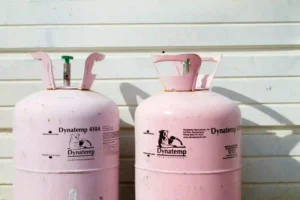
As a project coordinator, I have worked on many residential and commercial projects. If you want to know more about VRF, read my blog on the working principle of VRF/VRV.
As mentioned before, there are some conditions where your system can be affected by viruses. Here, I am explaining those conditions to you.
CONDITION 01: As discussed in the working principle of VRF blog, there are several types of indoor units used in VRF systems. such as split AC, duct type, fresher units, etc. If your system includes a fresher unit, it means that by using a fresher fan and duct, it takes fresh air from outside and supplies it to your space. In this case, your system can be affected by viruses and infections.
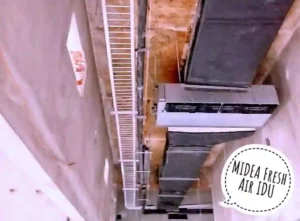
However, if you turn off the fresher fan and fresher indoor unit, or if you don’t use any fresher unit in your space, you can avoid this issue.
Yes VRF doesn’t spread Viruses from outside, but by fresh air supply viruses can affect your system.
HVAC DRAWING OF Finlay South City 6TH FLOOR PLAN
For example, please see the attached drawing. This is one of my commercial projects, where I am currently working with my team. It is a shopping mall. Here, we used a Fresh Air indoor unit, which takes fresh air from outside and supplies it to the floor. After reviewing the drawing, things will become clearer to you.
Whether it is a home, residential, commercial, or industrial project, you must have a fresh air supply in your space. Without it, you will not get enough oxygen, and a lack of oxygen is a significant issue.

Additionally, if there is no fresh air supply, the air cooling or heating quality will be poor. Even if you don’t use any air conditioner in your home, you still need fresh air through windows or doors for your well-being.

CONDITION 02: Now imagine a COVID-19 patient is present in your commercial space.
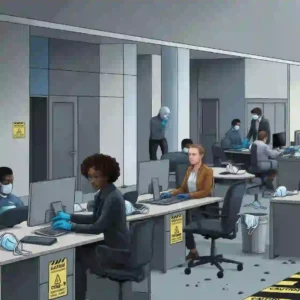
If the design includes a separate boundary where airflow doesn’t cross between areas, and there is no option for the airflow to cross the boundary—

especially if the infected person doesn’t cross the boundary—then the area on the other side of the boundary will be safe from the virus/infection.
Proper maintenance:
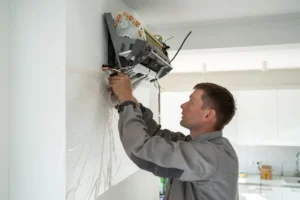
Proper maintenance is mandatory to keep your air conditioning system safe. The filter of the air conditioner needs to be cleaned every three months. Otherwise, the evaporator will get dirty. The cool air is a result of the heat exchange process, which happens in the evaporator. During this process, a little amount of water stuck on here. That’s why drain pipes are used in the air conditioner system. If that place has dirt inside it then it can be the cause of mold issues, which can cause virus issues in the room.
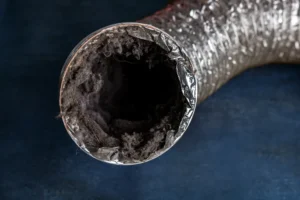
On the other hand, after long-term use inside posting of the duct gets dirty. In this condition duct cleaning service is important.
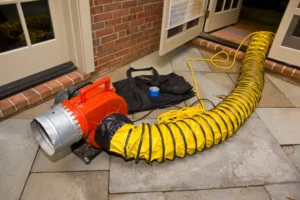
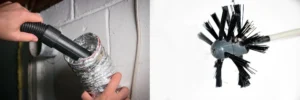
Other issues:
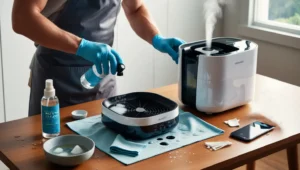
If you use a Humidifier at your home, then you should clean it weekly. There is a filter in a humidifier, if we don’t clean it properly then mold can grow in it. This is how viruses easily spread in our homes. in this situation, If you have an air conditioner, by air circulation it will spread all over the home.
Things will get worse when you have an HVAC ducted system in your place. Mold & bacteria can grow inside the duct and it is hard to clean this dust.
How to avoid the risk:
To avoid this risk, the room needs to have a proper ventilation system. if you have a fresh air unit then ok, but if you don’t have one then install a Fresh air fan for proper air supply. Also, you need to have an exhaust air line in the toilets and kitchen area. By doing this if a sick person is present in the room, there is less chance to affected by it.
If you have ducted mini split, VRF, or another system then use an extra filter in the return line. This will make sure that the air conditioner is providing clean air.
The conclusion is that you just need to maintain three things to make sure that your air conditioner is not spreading the virus. They are
- Proper fresh air supply for home.
- Filter cleaning in every three months.
- Proper maintenance.
